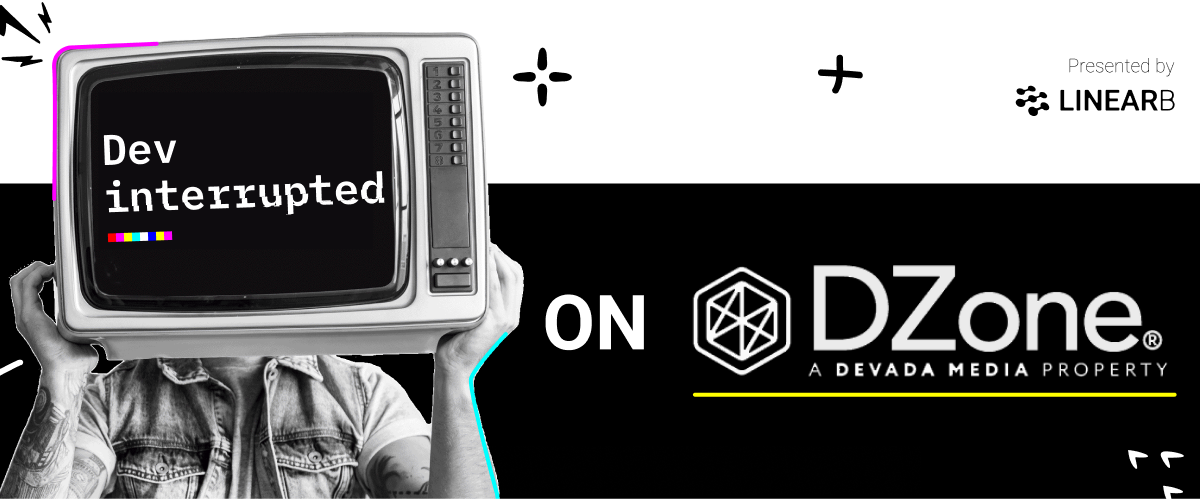How a Trained Therapist Diagnoses Healthy Dev Teams
Nobody knows what dev teams need to grow and heal than Kelly Vaughn. Join our conversation with Kelly on this week's episode of Dev Interrupted
Join the DZone community and get the full member experience.
Join For Free Not only is Kelly Vaughn one of the pioneers in building thought-leadership content for the developer community, she’s one of the rare programmers who comes to the craft with the background of a trained therapist.
Not only is Kelly Vaughn one of the pioneers in building thought-leadership content for the developer community, she’s one of the rare programmers who comes to the craft with the background of a trained therapist.
From knowing what content devs need to grow to being able to recognize the cognitive-behavioral impacts of the developer experience, Kelly Vaughn is truly one of our most unique guests to date.
In our conversation, Kelly leveraged her background as a therapist to explore what dev orgs should be doing to recognize developers as unique human beings, with their own feelings, motivations and biases.
A discipline-crossing discussion, this pod is invaluable if you’re thinking about what a healthy dev team should look like as well as how to build one.
Episode Highlights Include:
- (1:09) Ladybug podcast
- (4:44) Kelly's degree in clinical social work
- (12:37) What not to share on social media
- (19:01) Why burnout is not a "24 hour flu"
- (22:23) Bringing more empathy into 1:1s
- (23:50-31:27) Dealing with Imposter Syndrome, negative self-talk & toxic positivity
- (41:41) Dangers of comparing yourself to others
- (44:51) Importance of building your network as an entrepreneur
Episode Excerpts:
Want to be an entrepreneur? Build your network:
Conor: Let's say we want one takeaway for someone who's a budding entrepreneur or a budding engineering leader. What would that piece of advice be?
Kelly: Build your network. Honestly, build a community around you. Entrepreneurship is extremely lonely when you're at the top by yourself. Engineering leadership, the higher up you go, the more lonely it becomes because the fewer people that you can talk to, the more responsibilities you have and the more people who are depending on you. So build a network of other engineering leaders or other entrepreneurs who are, you know, on that same journey as you, regardless of whether they're further ahead or just getting started. It doesn't matter because there's so much you can share from just a "this is what's happening in my day" standpoint that you can't share with your direct reports, for example. I find that the more that you spend nurturing that network and building those strong connections with others, the easier those difficult times become, because the difficult times will come.
Managing burnout:
Kelly: There are a number of things you can do as an engineering leader to help your team through burnout. But I think the most important thing is to have empathy, you know? This is a very... The past two years have just been, you know, chaotic for everybody. And we're all trying to figure out how to best approach, you know, this next step, this next chapter of our lives, this next chapter of, you know, what the world currently looks like. And you really need to be checking in with your teams like my one on ones, for example, we're not talking about projects unless it just comes up organically. We're talking about, how are you doing? You know, let's talk about you. What's, you know, what's going on? And I think it does also help that I can I have the therapy training so we can maybe turn it into a mini therapy session. But if you're not comfortable with that, I totally also understand that you don't want to talk about that. You want to talk about projects. Let's talk about projects. It's just about catering what that person needs at the present time to help them through their burnout and recognize that it's not going to happen overnight.
Published at DZone with permission of Conor Bronsdon. See the original article here.
Opinions expressed by DZone contributors are their own.

Comments